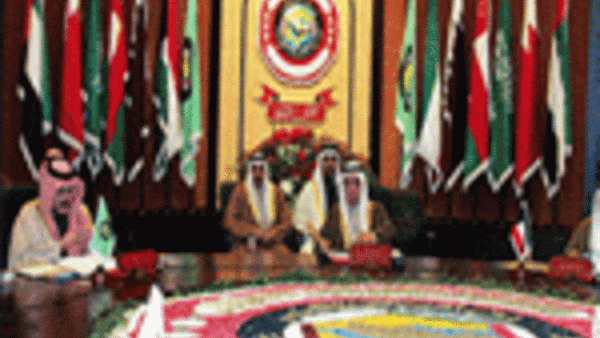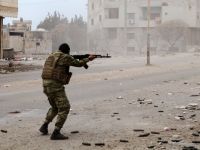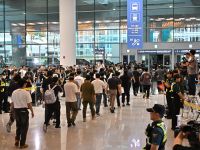By Nader Habibi*
In the coming years GCC countries will face a new financial challenge. They will have to manage billions of dollars worth of foreign assets that they have accumulated as a result of their high oil revenues. By some estimates these assets have already exceeded $1500 billion and will grow to $2500 billion by 2012. Since oil revenues belong to GCC governments most of the oil wealth is under state control. Like many other oil exporting countries, GCC governments have established special funds to manage their oil wealth. These funds, which are commonly referred to as Sovereign Wealth Funds (SWF) to differentiate them from private investment funds, are managed by government bodies that are independent of the central banks.
The GCC governments have allocated their oil wealth between central banks and SWFs. The GCC central banks control a small portion of the foreign assets and use them to assure exchange rate stability through maintenance of adequate reserves of hard currency and liquid financial investments. (The only exception is <?xml:namespace prefix = st1 ns = "urn:schemas-microsoft-com:office:smarttags" />Saudi Arabia, where, the Saudi Arabian Monetary Agency (SAMA) manages the entire public oil wealth.) The GCC sovereign funds on the other hand, focus on long-term financial objectives such as maintaining a well diversified portfolio with low-risk and adequate rate of return. According to a recent estimate by the International Institute of Finance the official reserves of GCC central banks accounts for only 10% of their total foreign assets; the rest were managed by SWFs. For example the official international reserves of the UAE Central Bank were $27.6 billion by end of 2006 while the portfolio of the UAE’s Sovereign Fund (Abu Dhabi Investment Authority) was worth anywhere between $160 billion and $400 billion.(1)
Management of the foreign investments and government-owned wealth funds of GCC countries will require several strategic considerations that make the process more complicated than private hedge funds. The complications arise from the fact that the diplomatic and economic relations between the Arab countries and rest of the world will affect the scope of available investment opportunities and their risk structure. In general many countries are skeptical of large foreign investments by public enterprises and government-owned investment funds of other countries (2). The suspicion is rooted in fears that these public firms might be used by foreign governments to harm the economic and national interests of the host country. These fears frequently lead to prevention of foreign investment in specific projects. The United States blocked the Chinese oil firm CNOOC from purchasing Unocal in 2005 and German government discouraged the Russian state telecom firm Systema from purchasing a sizeable share of Deutsche Telekom in 2006.
A typical investment firm in a Western country makes its foreign investment decisions on the basis of two categories of risk parameters in a potential host country: economic risks and political risks. The economic risks depend on macroeconomic conditions, regulatory environment and supply/demand forces in the industry under consideration. The political risks depend on factors such as level of political stability, corruption, rule of law and the government’s respect for property rights. The SWFs of GCC countries must deal with these risk factors and in addition they must also take several diplomatic risk factors into account. These factors include:
-
Adverse diplomatic developments leading to asset confiscation or asset freeze by the host government. For example in response to a major terrorist attack, involving the citizens of an Arab country (particularly a GCC member state), the United States might freeze the strategic assets of that country or confiscate them to compensate the victims.
-
Negative media campaign and consumer boycott against investments of a GCC country. Even without formal government intervention the GCC investments in a country can fall victim to negative media campaign which will result in loss of demand and reduced profitability. For example a GCC-owned bank or entertainment center in Europe or the United States might face a consumer boycott as a result of an unexpected rise in anti-Aram sentiments.
-
Host government preventing the purchase of a firm by a GCC buyer or limiting the investment to a minority holding for national security reasons. This is best demonstrated by the U.S. pressure on Dubai Ports World to sell off its U.S. port management assets in 2006.
-
Heavy regulatory burden as a result of national security considerations. Financial transactions between the home office and foreign branches of a GCC firm might become subject to very restrictive controls with an adverse effect on efficiency and profitability of operations.
-
GCC governments manipulating the allocation of their foreign assets for diplomatic reasons. Political control over SWF will allow a GCC government to use it for political or diplomatic purposes. For example if a GCC government seeks diplomatic support from a particular country for an issue of interest to the Arab world it might instruct its SWF to increase its investment in that country as a gesture of good will. To the contrary, if a host country assumes an anti-Arab position in an international dispute the government might instruct the SWF to reduce its asset holdings in that country. It is believed that some GCC countries hold an excessive amount of U.S. assets because of their special strategic (security) relationship with the United States.
(The United States) These diplomatic considerations vary from one country or region to another and play an important role in allocation of GCC foreign portfolios. The current risk structure of various regions for GCC investment purposes appear in the table below. The United States offers an attractive investment environment with low economic and political risks. But for GCC countries (Arab countries in general) it carries a large diplomatic risk. Although GCC countries have invested a large portion of their recent oil revenue savings in the United States, most of these investments are in government securities which are highly liquid and face smaller diplomatic risks. For both political and economic reasons GCC countries will continue to invest in the United States but the composition of their assets will be highly influenced by the diplomatic risks.
(Asia) It is only in the past few years that GCC countries have turned their attention to Asia, particularly China, for investment opportunities. East Asia carries a low diplomatic risk for GCC countries as it has not had any diplomatic or military tensions with the Arab world in recent history. Good diplomatic relations along with other positive factors have encouraged GCC investors to pay more attention to long-term investment projects in fast-growing Asian countries. Arab investors have primarily focused on Petrochemicals, oil refineries, and tourism facilities. Not surprisingly these investments have been welcomed by Asian governments. It is also worth noticing that Asian (Chinese) investment in GCC countries has also sharply increased in recent years and we expect the flow of direct investment in both directions to grow steadily in the next five years.
|
GCC Investment Risk Factors |
Economic Risks |
(Domestic) Political Risk |
Diplomatic Risks |
Estimated GCC Investment 2002-2006 * |
|
|
United States |
Low |
Low |
High |
$300 bn |
|
|
China/Advanced Asian Countries |
Low |
Low |
Low |
$60 |
|
|
Europe |
Low |
Low |
Low |
$100 |
|
|
Emerging Markets (other) |
Medium |
Medium |
Low |
$22 |
|
|
Arab Countries |
Medium |
High |
Medium |
$60 |
|
|
* Source: Estimates reported in a 2007 report by the International Institute of Finance |
|||||
(Middle East) The GCC interest in investment opportunities in the Middle East is also affected by strategic considerations. Since the GCC countries are an integral part of the Arab world, their social and political stability is closely linked to the stability of other Arab countries. The GCC countries have found it in their own interest to promote economic growth in lower-income Arab countries. Despite the fact that the political risks remain high in many Arab countries, the GCC countries are trying to promote region-wide development through expansion of trade, investment and financial aid. The GCC countries are particularly interested in promoting growth and stability in Egypt, Jordan and Yemen. Fortunately many Arab governments have undertaken important economic reforms in the past ten years, which have made them more attractive for foreign investment. Egypt is the recipient of largest share GCC investments in the Arab world and it is also the Arab country whose stability is most important to GCC states.
Notes:
1) No official data on size of ADIA assets is available. A recent study by Detsche Bank estimated the ADIA assets at $160 billion but a report by the International Institute of Finance puts the value of these assets at $600 billion.
2) See: “West’s Growing Fear of State Funds”, Eckert Woertz, GulfResearchCenter July 30, 2007 (www.grc.ae).
*Nader Habibi is the Henry J. Leir Chair in Economics of the Middle East in the CrownCenter for Middle East Studies (BrandeisUniversity).







